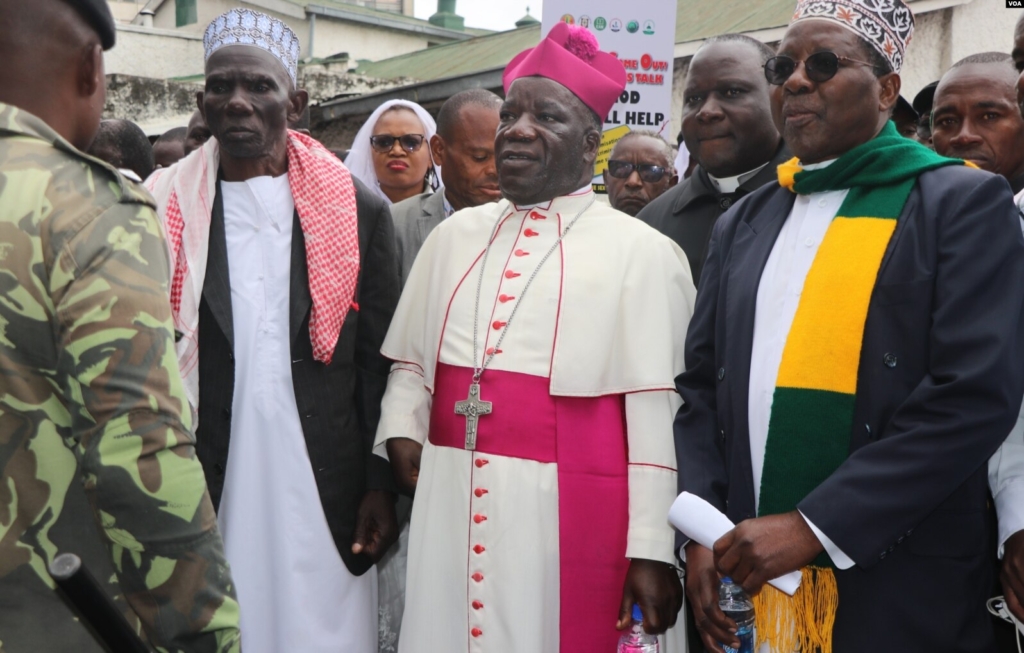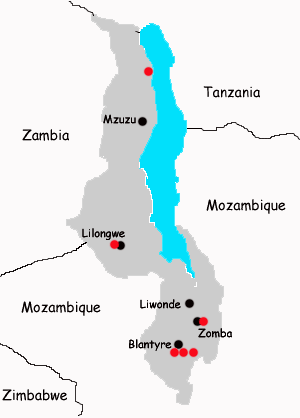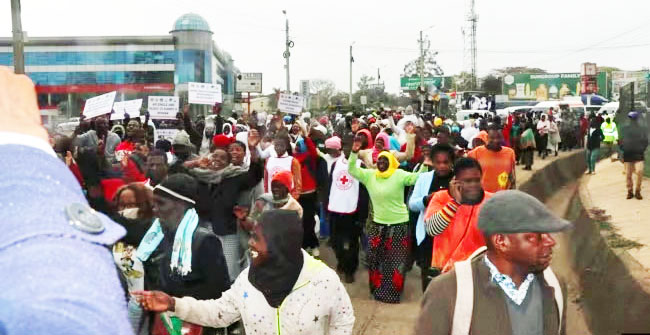As Malawi’s anti-gay laws face court challenge, protesters take to the streets
Colin Stewart is a 45-year journalism veteran living in Southern…
Traditional Christians and Muslims join ranks to oppose same-sex marriage

About 5,000 demonstrators on [July 13] staged an anti-LGBTQ protest in Lilongwe, the capital of the conservative southern African nation of Malawi, where same-sex relationships are illegal.
The rally comes against the backdrop of a court case brought by a Dutch national and transgender woman from Malawi who are challenging the constitutionality of the country’s laws on homosexuality.
Organised by the local Catholic Church and backed by other religious groups, demonstrations were held simultaneously in other major cities including Blantyre, Mzuzu and Zomba.
Archbishop Desmond Tambala led protesters who marched through Lilongwe carrying placards before handing a petition to lawmakers outside parliament.
“Homosexuality goes against everything that we believe as a people,” said the petition read out to parliamentarians by Sheikh Dinala Chabulika, of the Muslim Association of Malawi.
Reverend William Tembo of the Malawi Council of Churches said same-sex relationships were “strange, and we are not ready to accept these unfamiliar phenomena in Malawi”.
“We are a family-oriented nation, a nation that fears God, and that is why the church stands against same-sex campaigners,” said Tembo.
The protesters called on President Lazarus Chakwera, a former evangelical preacher, to resist pressure to legalise same-sex marriage.
Government spokesman Moses Kunkuyu told protesters the administration would take into account the concerns raised by religious leaders.

The demonstrations coincided with a constitutional court case brought by Jan Willem Akstar, a Dutch NGO worker, and Jana Gonani, a local transgender woman.
The pair is seeking to have bans on same-sex marriage and gay-sex overturned, arguing they violate the right to privacy and dignity, among others.
Gay sex is a criminal offence punishable by up to 14 years in jail in the country.
Akstar and Gonani have separately faced charges under the colonial-era legislation outlawing sodomy.
Gonani was sentenced to eight years in jail in 2021.
Akstar, 51, is currently on trial and is also facing charges of sexual abuse relating to his time working for a financial aid charity in Blantyre.
Their cases were joined before the constitutional court, which will begin hearings next week.
Malawi’s justice ministry issued a moratorium on arrests and prosecutions for consensual homosexual acts in 2012, but the order was suspended by the High Court in 2016 pending a judicial review.
Religious Leaders in Malawi Protest Same-Sex Marriage

… The nationwide protests come as the Constitutional Court in Malawi continues to hear a case in which Dutch national Jan Willem Akstar and transgender Malawian woman Jana Gonani argue that Malawi’s anti-homosexuality laws violate their fundamental rights, including privacy and dignity.
Homosexuality is an offense in Malawi and punishable by a maximum prison sentence of 14 years.
However, civil society organizations have voiced concerns about discrimination faced by lesbian, gay, bisexual, transgender and queer (LGBTQ) individuals in the country.
Michael Kaiyatsa, executive director of the Center for Human Rights and Rehabilitation, said religious leaders have a right to hold demonstrations about anything they feel is a sin, but they should also consider the rights of other groups.
“Our concern as human rights organizations is that this will have negative implications not only on the rights of LGBT persons, but it will also have negative implications on efforts to fight HIV,” Kaiyatsa said. “Because, what it will do is to roll back the gains that we have made on HIV among men who have sex with men, for example.”
Kaiyatsa said studies have shown that the prevalence rate of HIV and AIDS in those who engage in same-sex acts is about 40 percent, so discriminating against them would likely push the number even higher.
Eric Sambisa, executive director for Nyasa Rainbow Coalition, which fights for the rights of LGBTQ people in Malawi, said it is sad that religious leaders are fostering discrimination.
“The church is a powerful organization in society,” he said. “And seeing the church being in the forefront to demonstrate can actually fuel violence against an already disadvantaged community. So, it’s sad that this is happening like this.”
Sambisa told VOA that he has gone into hiding following death threats from anonymous callers. The threats came a few weeks after his office was burned down in Blantyre.




